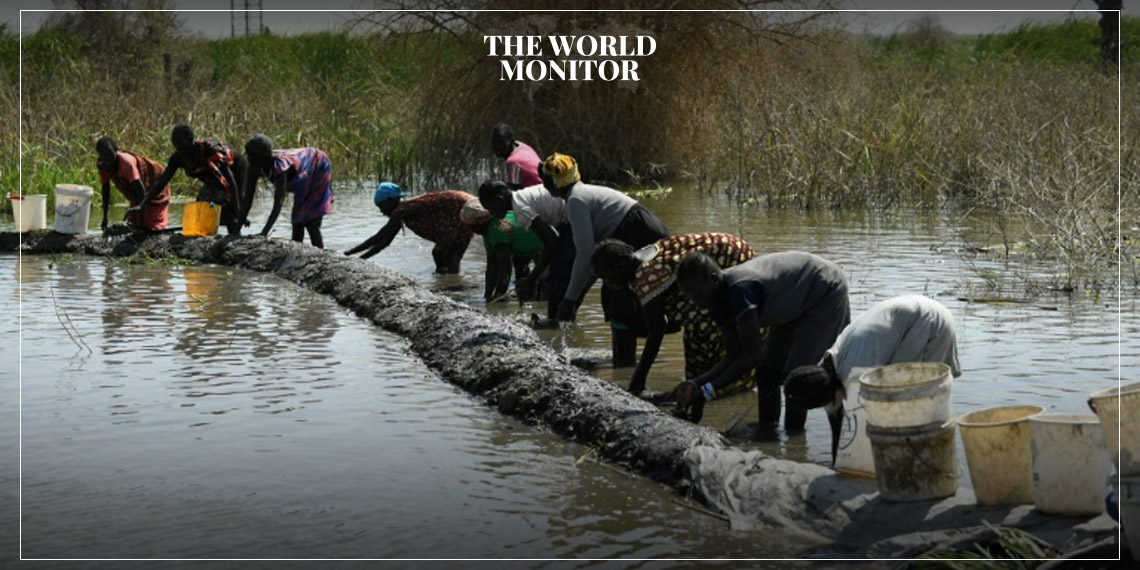A small airstrip in Bentiu, South Sudan, stands as a vital lifeline amid widespread flooding, preserved by large dykes in a country already devastated by war.
The region, particularly Unity State, has been heavily affected by floods, with more than 700,000 people impacted across the nation, according to the UN’s humanitarian agency. Worse flooding could hit in the coming month.
In Bentiu, around 200,000 internally displaced people (IDPs) shelter in a camp protected by a five-meter-high (16-foot) wall, constructed by Pakistani military engineers from the United Nations Mission in South Sudan (UNMISS). These engineers are working tirelessly to maintain over 120 kilometers (75 miles) of dykes, keeping the waters from flooding the camp.
Major Mohi Ud Din, leading the taskforce, emphasized the importance of the airstrip, which provides a crucial means of receiving supplies and food as roads are frequently cut off due to the flooding.
One camp resident, Tap Mach Dhieu, who fled his home during the civil war in 2014, explained that while he receives rations from the World Food Programme, he still has to hire a canoe to find firewood. He stressed the essential role of the UN dykes, saying, “The lifeline of the people is UNMISS, not the government.”
Dhieu also expressed frustration with government officials, citing their inaction in the face of looting and destruction during the civil war. “Floods are a natural disaster, but looting cows and burning houses is man-made,” he said, calling it the government’s responsibility to address these issues.






